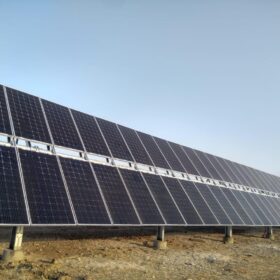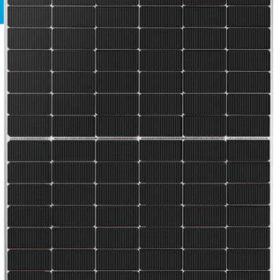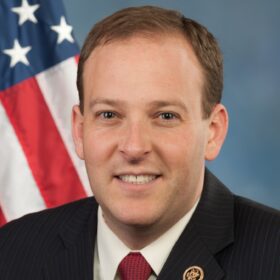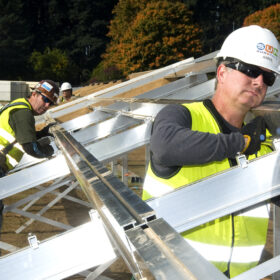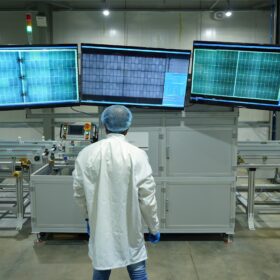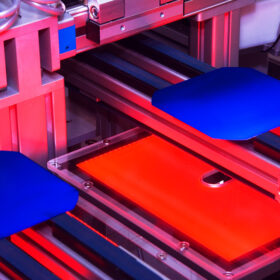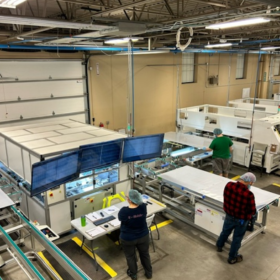Corning, Suniva, Heliene to produce first fully US-made solar module
Corning, Suniva and Heliene are combining their strengths to produce what will be the first solar module with polysilicon, wafers and cells made in the United States.
Gensol Engineering to sell US arm Scorpius Trackers for INR 350 crore
Gensol Engineering has signed a non-binding term sheet to sell its US arm Scorpius Trackers to a major renewable energy solutions provider in the US.
Avaada Electro to showcase high-efficiency TOPCon solar modules at InterSolar North America 2025
Avaada Electro is set to debut its latest high-efficiency TOPCon solar modules at InterSolar North America 2025. The company said its modules are built for low-light efficiency, high-temperature resilience, and diverse climate adaptability across North America.
US added nearly 50 GW of new solar generating capacity in 2024
A new report by the Business Council for Sustainable Energy and BloombergNEF unpacks the market and policy trends facing the U.S. solar industry.
U.S. Environmental Protection Agency seeks to ‘instantly terminate’ $20 billion in clean energy grants
Administrator Zeldin said there will be “zero tolerance of any waste and abuse,” saying financial agreements under the Greenhouse Gas Reduction Fund must be “instantly terminated.”
Trump executive order places 25% tariff on aluminum and steel
Aluminum is used in solar panel frames and racking and steel is used in solar ground mounts and trackers.
India exported solar modules worth $782 million in April-Nov. period of 2024
India exported solar PV modules worth around $782 million in FY 2024-25 till Nov. 2024. The value of exports to USA stood at $756.08 million.
U.S. raises solar polysilicon, wafer and cell tariffs from China to 60%
After the Biden administration doubled Section 301 tariffs from 25% to 50%, the Trump administration has added another 10%.
U.S. surpasses 50 GW of solar module manufacturing capacity
The buildout is happening across the domestic solar supply chain and, at full capacity, planned facilities will produce enough to meet the demand for solar in the U.S., according to the Solar Energy Industries Association.
Amid uncertainty, Premier Energies halts plans for U.S. solar cell factory
Premier Energies of India put its plans on hold to build a manufacturing facility in the United States as it waits for “the regime in the U.S. to settle down and be clear on what they want to do.”

